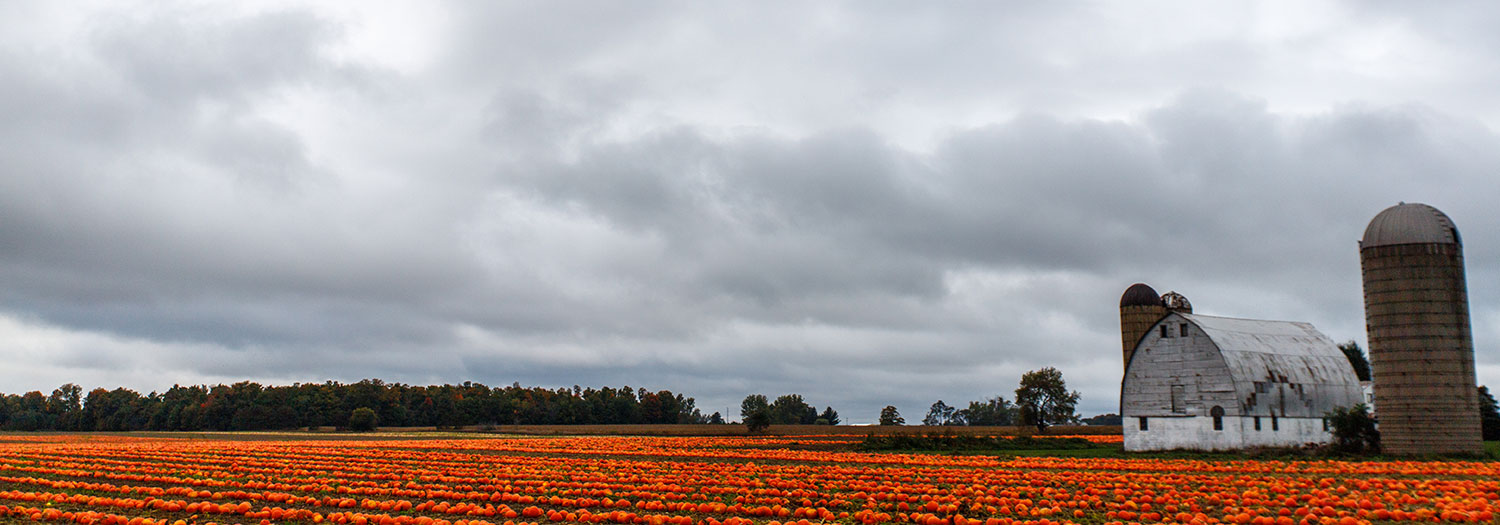- Northern Illinois Center for Community Sustainability
- Current Research
- Specialty Crop Production

Specialty Crop Production
Development of Robotic Technologies Tailored to Support Specialty Crop Production in the State of Illinois
Hasan Ferdowsi, Ph.D.
NIU Assistant Professor of Electrical Engineering
Agriculture makes up a significant portion of the Illinois economy, and Illinois is one of the nation’s leading producers of specialty crops, such as horseradish, asparagus and pumpkins. These specialty crops comprise about 100,000 acres of farmland and produce nearly $500 million in annual sales. They also answer the need for a local, sustainable food supply, which is even more important in light of the recent pandemic. However, specialty crop producers have been slow to adopt digital agriculture technologies that have the potential to help with labor-intensive tasks and improve the health, quality and value of their crops.
This study aims to fill that gap by identifying exact requirements and constraints for deployment of robots in specialty crop fields. The study’s lead researcher is Nima Lotfi, an assistant professor of mechanical and mechatronics engineering at Southern Illinois University Edwardsville (SIUE). Co-investigators include NIU’s Hasan Ferdowsi and Carrie Butts-Wilmsmeyer, an associate professor of biological sciences at SIUE.
The overall goal of this project is to develop robotic and remote sensing technologies tailored for specialty crop systems. Most recent advancements in precision agriculture have been developed for monoculture – intensively managed commodity grain systems where a single crop (such as corn) is tightly planted throughout large, uniform fields. Specialty crops, by contrast, are typically grown in smaller field plots with lower plant densities, more species diversity, drooping canopies and rougher, more furrowed terrain, all of which present obstacles for robot locomotion, remote sensing and navigation. The team aims to design and develop robotic solutions capable of autonomously navigating specialty crop fields and taking temporal and spatial measurements at critical physiological times, both below and above canopy, which they hypothesize will lead to more accurate measurements related to yield, disease progression, insect infestation, etc.
The first phase of the project aims to identify exact requirements and constraints for ground robot deployment, and how that differs between species. The team will develop data-driven algorithms to enable robot navigation in uncertain terrain, and then validate those algorithms through field tests using custom-built ground and aerial robots, along with machine learning algorithms. The ultimate goal of this project is to lay the foundation for further research and development of tailored robotic technologies. Ultimately, the team hopes this project will help to ensure the sustainability of specialty crop production in Illinois while also contributing to advancements in robotics, data science and artificial intelligence.
-
Current Research
-
Basil Flavor
-
Cancer Mortality Index
-
Caregiver Stakeholder Registry
-
Forever Chemicals
-
Geo-STEM Learning Ecosystem
-
Laboratory-scale Biomass Containers
-
Municipal Solid Waste Framework
-
Prairie Restoration
-
Specialty Crop Production
-
Sustaining Illinois through Collaborative Governance
-
Urban-regional Modeling
-
Water Quality
-
Basil Flavor
Contact Us
Matthew Deitch, Ph.D.
Director, Northern Illinois Center for Community Sustainability
mdeitch@niu.edu